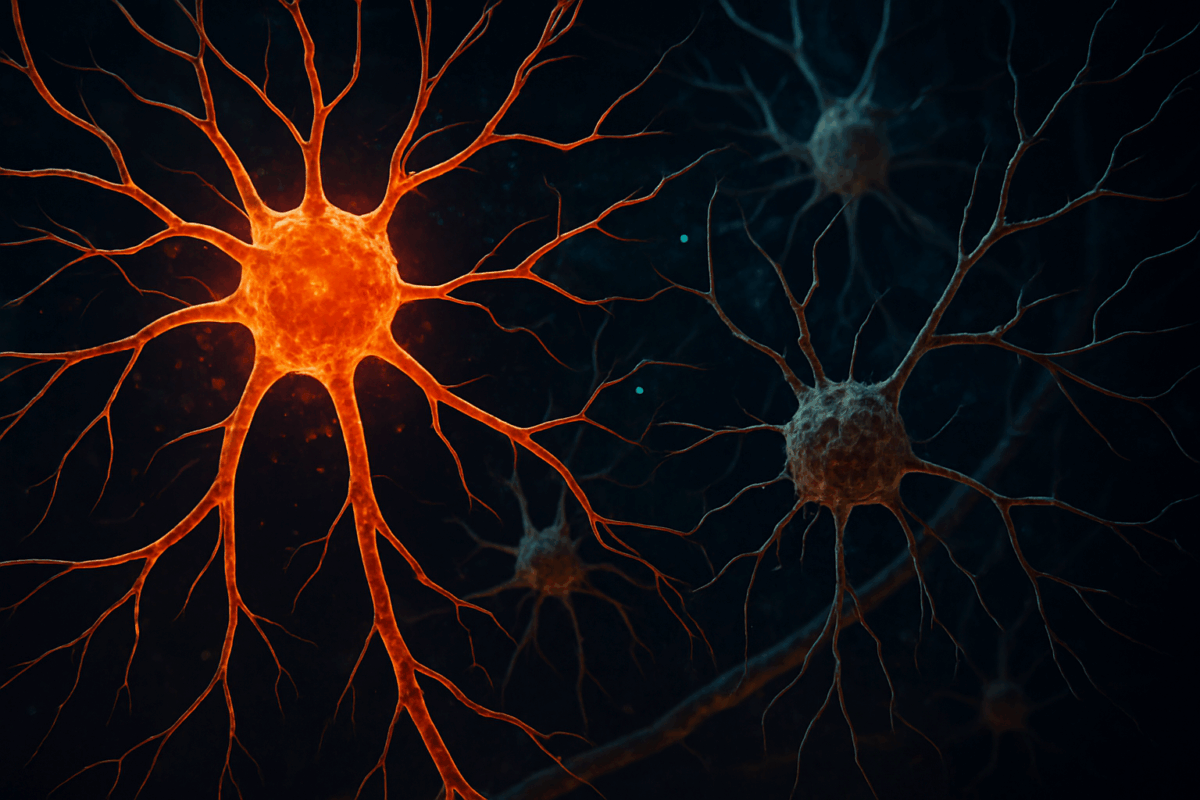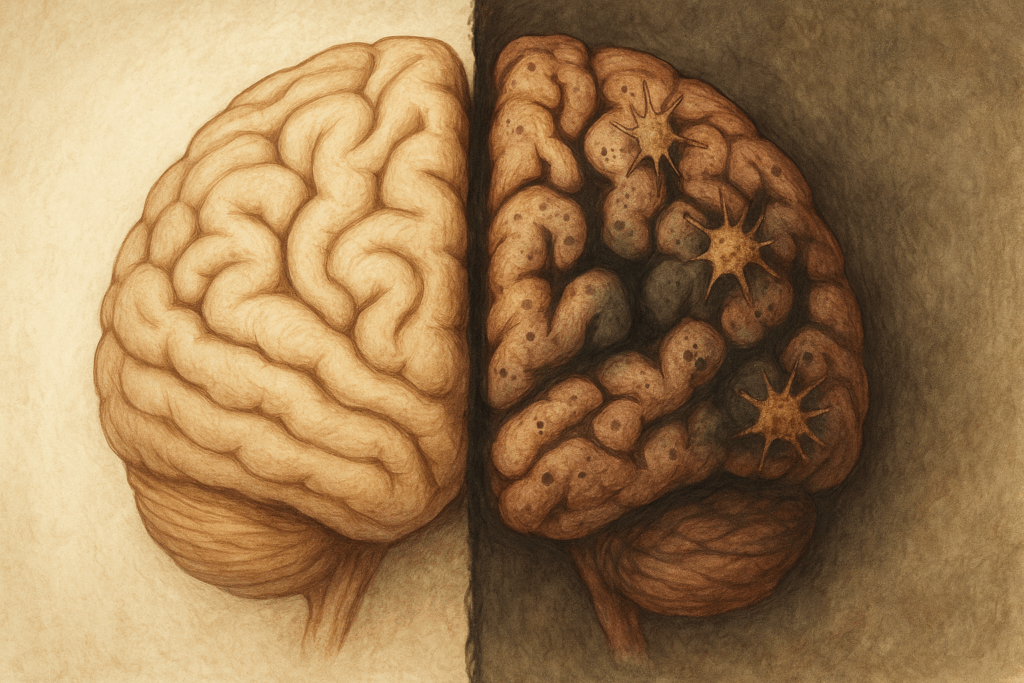Introduction: How Memory Evolves Over a Lifetime
Memory, a cornerstone of human identity and function, naturally evolves as we age. While some changes are a normal part of getting older, others may raise concerns about cognitive health and quality of life. Exploring how age affects memory reveals an intricate interplay between brain biology, lifestyle factors, and environmental influences. Understanding age-associated memory impairment is not merely about acknowledging decline; it is about recognizing the signs, adapting strategies for preservation, and embracing preventative approaches that science increasingly validates. This article provides a comprehensive, evidence-based exploration of how memory changes with age, why a 68-year-old may become confused and forgetful, and how early interventions can help prevent or slow the onset of age amnesia. Drawing from leading neuroscience research and clinical insights, we aim to equip readers with actionable knowledge to support brain health across the lifespan.
You may also like: Best Herb for ADHD Support: How Natural Remedies and Herbs for ADHD Women May Help Boost Focus and Calm
What Is Age-Associated Memory Impairment?
Age-associated memory impairment refers to the mild and often gradual decline in memory function that typically accompanies normal aging. Unlike the pathological decline seen in dementia, age-associated memory impairment involves minor forgetfulness that does not severely impact daily life. For example, an elderly man with a poor memory might misplace his glasses or struggle to recall a familiar name but still manage his personal affairs competently. It is crucial to distinguish this normal cognitive aging from more severe forms of memory loss, as early recognition can help guide appropriate interventions. Research shows that certain brain regions, notably the hippocampus and prefrontal cortex, are more vulnerable to age-related shrinkage and synaptic loss, leading to slower retrieval of information. Importantly, while these biological changes are natural, lifestyle factors like physical activity, diet, cognitive engagement, and stress management play significant roles in modulating their impact.

How Does Memory Change with Age?
Memory does not deteriorate uniformly as we grow older. Different types of memory—short-term, long-term, procedural, episodic, and semantic—experience distinct trajectories. Short-term memory and working memory often show the earliest signs of decline, leading many older adults to report difficulties in multitasking or keeping track of conversations. Meanwhile, procedural memory, such as remembering how to ride a bicycle, tends to remain largely intact. Understanding how memory changes with age allows for a nuanced appreciation of normal versus concerning patterns. For instance, while it is common for a 68-year-old to occasionally feel confused or forgetful, frequent disorientation or repeated questions may indicate more serious underlying issues. Cognitive neuroscience studies have demonstrated that although some neural networks weaken over time, others can compensate if properly stimulated, offering hope for maintaining functional memory well into old age.
Biological Mechanisms Behind Age-Related Memory Decline
Several biological processes contribute to memory changes as we age. Neuronal loss, reduced synaptic density, decreased production of neurotransmitters like acetylcholine, and vascular changes in the brain all play significant roles. These changes impair the efficiency of neural communication, making it harder to encode, store, and retrieve memories. Furthermore, age-associated inflammation and oxidative stress accelerate neural damage, potentially setting the stage for more severe cognitive conditions. Emerging research also highlights the role of mitochondrial dysfunction and impaired autophagy in the aging brain, emphasizing the importance of cellular housekeeping in maintaining cognitive vitality. Understanding these underlying mechanisms helps explain why an elderly man with a poor memory might not just be “forgetful,” but experiencing tangible structural changes within his brain. However, advances in neuroscience suggest that interventions targeting inflammation, oxidative stress, and mitochondrial health could mitigate some aspects of memory decline.

Does Dementia Age You Faster? The Distinction Between Normal and Pathological Aging
One pressing question that often arises is, “Does dementia age you faster?” While dementia itself does not physically accelerate the chronological aging process, it profoundly affects cognitive and functional abilities, making individuals appear and feel older than their biological age. Dementia, including Alzheimer’s disease, involves pathological brain changes such as beta-amyloid plaque accumulation and tau tangles, leading to rapid and severe memory and functional decline. In contrast, age-associated memory impairment progresses slowly and remains relatively stable over time. Understanding the difference between these two trajectories is vital. Recognizing whether a 68-year-old who is confused and forgetful is experiencing normal age-associated changes or early dementia can profoundly affect care strategies and outcomes. Early medical evaluation, cognitive testing, and lifestyle interventions are key to addressing these challenges proactively.
Early Signs of Age Amnesia and Why Timely Intervention Matters
Age amnesia, or significant memory lapses associated with aging, can often start subtly. Early signs may include frequently forgetting appointments, misplacing objects, or struggling with word-finding during conversations. While isolated incidents are common and usually benign, a consistent pattern of such behaviors warrants further evaluation. Neuroscientific research emphasizes that early intervention is crucial in preventing progression to more serious cognitive impairments. Engaging in memory training exercises, maintaining a nutrient-rich diet, managing cardiovascular health, and reducing chronic stress are all evidence-based strategies for mitigating age-associated memory impairment. Importantly, understanding how memory changes with age allows individuals and caregivers to distinguish between normal aging and warning signs that require medical attention.

Why a 68-Year-Old May Feel Confused and Forgetful: Exploring Contributing Factors
Experiencing confusion and forgetfulness at 68 can stem from multiple intertwined factors beyond simple aging. Vascular health, medication side effects, sleep disorders, untreated depression, and sensory impairments like hearing loss all contribute significantly to cognitive challenges. In some cases, lifestyle factors such as social isolation or nutritional deficiencies, particularly low vitamin B12 levels, exacerbate memory issues. Moreover, recent research points to the role of chronic low-grade inflammation—often driven by poor diet and sedentary behavior—in accelerating cognitive decline. Recognizing these modifiable risk factors can empower individuals to take proactive steps. For an elderly man with a poor memory, targeted interventions addressing these underlying issues can yield substantial improvements in cognitive function and overall quality of life.
Nutritional Strategies for Supporting Memory in Older Adults
Nutrition plays a pivotal role in maintaining cognitive function as we age. Diets rich in antioxidants, omega-3 fatty acids, and anti-inflammatory compounds have been consistently associated with better brain health. The Mediterranean diet, emphasizing fruits, vegetables, whole grains, fish, and healthy fats, has shown particular promise in reducing the risk of age-associated memory impairment. Specific nutrients such as vitamin E, B-complex vitamins, and polyphenols found in berries have been linked to enhanced memory and slower cognitive decline. Understanding how age affects memory highlights the necessity of a nutrient-dense diet to combat age amnesia. Incorporating foods like leafy greens, fatty fish, nuts, and berries into daily meals offers a practical, accessible way to support long-term brain health.

The Role of Physical Activity in Preserving Memory with Age
Physical exercise is not only vital for cardiovascular health but also for maintaining cognitive function. Regular aerobic exercise enhances blood flow to the brain, stimulates neurogenesis in the hippocampus, and boosts the release of neurotrophic factors like BDNF (Brain-Derived Neurotrophic Factor). These biological effects contribute to improved memory, executive function, and overall mental agility. Studies have shown that even moderate levels of physical activity can significantly reduce the risk of developing dementia and slow the progression of age-associated memory impairment. For a 68-year-old feeling confused and forgetful, incorporating activities such as brisk walking, swimming, or yoga could be transformative. Understanding how memory changes with age underscores the importance of integrating physical fitness into daily routines for cognitive longevity.
Cognitive Training and Mental Stimulation: Exercising the Mind
Just as the body requires exercise to stay fit, the brain benefits immensely from mental stimulation. Engaging in activities that challenge the mind—such as puzzles, learning a new language, playing musical instruments, or even navigating unfamiliar routes—can help build cognitive reserve. Research indicates that individuals who regularly engage in complex cognitive tasks are less likely to experience severe memory decline. For those grappling with age amnesia or signs of age-associated memory impairment, structured cognitive training programs can offer measurable improvements. Neuroplasticity, the brain’s ability to form new connections, persists throughout life, providing a compelling argument for lifelong learning and mental engagement as potent tools against memory decline.
Sleep, Stress, and Their Impact on Aging Memory
Quality sleep and effective stress management are fundamental to preserving memory as we age. Sleep is crucial for memory consolidation, the process by which short-term memories are transformed into long-term storage. Chronic sleep deprivation impairs this process and has been linked to greater risk of age-associated memory impairment and even dementia. Similarly, chronic stress elevates cortisol levels, which, over time, can damage the hippocampus, a critical region for memory formation. Understanding how age affects memory necessitates addressing these often-overlooked factors. Developing healthy sleep hygiene habits, practicing mindfulness, and seeking psychological support when needed can markedly improve cognitive health and reduce the risk of age amnesia.
Emerging Therapies and Natural Supplements for Memory Preservation
Advances in neuroscience and nutraceuticals offer exciting avenues for memory preservation. Natural compounds such as curcumin, resveratrol, and ginkgo biloba have shown potential in supporting cognitive function through anti-inflammatory, antioxidant, and neuroprotective mechanisms. Clinical trials investigating nootropic agents—substances that may enhance cognitive function—are increasingly focusing on their role in mitigating age-associated memory impairment. However, it is vital to approach such therapies with a critical eye, prioritizing evidence-based options and consulting healthcare providers before beginning supplementation. For an elderly man with a poor memory or anyone concerned about how memory changes with age, integrating natural supplements alongside lifestyle interventions could offer a holistic strategy for cognitive resilience.
Preventative Strategies for Protecting Memory Across the Lifespan
Prevention remains the most powerful tool against age-associated memory impairment and age amnesia. Adopting a brain-healthy lifestyle from midlife or even earlier dramatically reduces the risk of cognitive decline in later years. Strategies include maintaining optimal cardiovascular health, engaging in regular cognitive and physical activities, fostering rich social connections, prioritizing restorative sleep, managing chronic conditions like diabetes and hypertension, and embracing a diet rich in neuroprotective nutrients. Understanding how age affects memory empowers individuals to take proactive, scientifically grounded steps to safeguard their cognitive health for decades to come.

Frequently Asked Questions About How Age Affects Memory
1. Why do some elderly individuals experience sudden memory changes?
It’s not uncommon to notice a 68 confused forgetful person struggling with recent memories while recalling vivid details from decades ago. This phenomenon reflects how age affects memory, with newer memories becoming more fragile over time. Research suggests that brain regions responsible for short-term memory, such as the hippocampus, naturally decline in volume with age. However, it’s important to differentiate normal age associated memory impairment from early signs of neurodegenerative diseases. In many cases, lifestyle factors such as sleep quality, physical exercise, and emotional health have a profound influence on how age amnesia manifests in daily life.
2. How does emotional health influence memory as we age?
While we often focus on biological changes, emotional health plays a crucial role in how age affects memory. Depression, chronic anxiety, and feelings of loneliness—especially prevalent in a 68 confused forgetful individual—can intensify memory problems. Studies show that emotional stress alters hippocampal function, worsening age associated memory impairment beyond what would normally occur. Supporting emotional well-being through therapy, mindfulness, and social engagement can significantly buffer against cognitive decline. In this way, understanding how memory changes with age requires looking beyond the brain and into the full emotional experience of aging.
3. Can lifelong learning really protect against age-related memory issues?
Yes, lifelong learning acts as a “cognitive reserve” that strengthens the brain against the natural erosion seen in age associated memory impairment. Individuals who consistently challenge their minds with new skills, languages, or hobbies tend to experience slower declines. For example, an elderly man with a poor memory who takes up painting or chess can actually stimulate neuroplasticity, making new neural connections. Researchers exploring how age affects memory emphasize that the brain remains remarkably adaptable well into the eighth or ninth decade of life. This suggests that intellectual engagement is a powerful tool in resisting age amnesia.
4. What role does physical exercise play in memory preservation?
Physical exercise is one of the most powerful interventions for maintaining memory function as we grow older. Aerobic activities, in particular, improve blood flow to the brain and promote the growth of new neurons in memory-related regions. For a 68 confused forgetful person, even moderate daily walks can offer meaningful cognitive benefits. Experts studying how memory changes with age emphasize that physical activity doesn’t just benefit the heart—it actively reshapes the brain. Therefore, incorporating regular exercise may reduce the severity of age associated memory impairment and slow the rate at which age amnesia appears.
5. How does social interaction influence memory aging?
Staying socially active significantly affects how age affects memory. People who maintain strong social networks tend to perform better on memory tests compared to isolated individuals. A 68 confused forgetful senior who participates in community groups or family activities may retain sharper cognitive abilities longer than someone who feels disconnected. Loneliness, on the other hand, can accelerate the cognitive decline associated with age associated memory impairment. This insight highlights that interventions focused on social connectivity are just as critical as cognitive exercises in mitigating how memory changes with age.
6. Is there a difference between normal memory loss and dementia?
Absolutely. Normal age associated memory impairment involves occasional forgetfulness but does not significantly interfere with daily life. An elderly man with a poor memory may occasionally forget appointments but will remember them later or use reminders effectively. In contrast, dementia—particularly Alzheimer’s disease—progressively impairs reasoning, language, and judgment alongside memory. It’s also important to recognize that does dementia age you faster is a nuanced question; dementia doesn’t accelerate biological aging per se, but it profoundly diminishes mental capacities, making an individual appear “older” functionally. Recognizing early distinctions between normal and pathological memory changes is critical for timely intervention.
7. Are there emerging treatments for age-related memory decline?
Recent research into personalized medicine and gene therapies offers exciting possibilities for treating age associated memory impairment. Scientists are exploring how manipulating certain genes involved in neuroinflammation may slow how memory changes with age. Additionally, new drugs targeting amyloid-beta buildup show potential for early Alzheimer’s prevention. While no treatment fully stops how age affects memory, combining pharmaceuticals with lifestyle changes (like exercise and cognitive training) offers a comprehensive strategy. Even for a 68 confused forgetful individual, early interventions could one day significantly delay the onset of more serious memory disorders.
8. Does nutrition really make a difference for memory preservation?
Emerging evidence strongly supports the role of nutrition in protecting memory. Diets rich in omega-3 fatty acids, antioxidants, and phytonutrients help counteract oxidative stress, a major contributor to age associated memory impairment. For instance, an elderly man with a poor memory may benefit from adopting a Mediterranean-style diet emphasizing fish, nuts, berries, and leafy greens. Understanding how age affects memory means acknowledging the brain’s nutritional needs, which evolve over time. Smart dietary choices can profoundly influence how memory changes with age, offering a proactive defense against age amnesia.
9. How does sleep quality impact memory in older adults?
Sleep plays a crucial role in memory consolidation, especially in older adults. Disrupted or poor-quality sleep, common among those with age associated memory impairment, prevents the brain from properly storing new information. A 68 confused forgetful senior may experience fragmented sleep patterns, further complicating memory issues. Moreover, chronic sleep deprivation accelerates brain shrinkage in areas responsible for memory, worsening the natural trajectory of how memory changes with age. Addressing sleep disorders early can therefore be a game-changer in managing age amnesia and maintaining cognitive vitality longer.
10. What are the psychological effects of memory decline in aging?
Experiencing memory lapses can profoundly impact self-esteem, independence, and quality of life. For an elderly man with a poor memory, frustration, embarrassment, and even depression are common emotional responses. Understanding how age affects memory also involves appreciating these psychological burdens, which can create a vicious cycle: anxiety about forgetfulness often worsens memory performance. Support groups, therapy, and mindfulness practices can help individuals cope more effectively. Additionally, knowing that age associated memory impairment is a common part of aging—not necessarily a sign of dementia—can alleviate unnecessary fears about does dementia age you faster and promote better mental health outcomes.

Conclusion: Embracing Brain Health for a Vibrant Future
Understanding how age affects memory is not about resigning oneself to inevitable decline but about embracing proactive strategies rooted in science and experience. Age-associated memory impairment, while common, need not be debilitating. Recognizing the early signs of age amnesia, such as feeling confused and forgetful at 68, empowers individuals to seek interventions that can slow or even reverse certain cognitive declines. By addressing biological, lifestyle, and environmental factors—and leveraging advances in nutrition, physical fitness, mental stimulation, and emerging therapies—it is possible to preserve memory and cognitive vitality well into older age. Integrating these approaches with a spirit of lifelong learning and self-care transforms the narrative of aging from one of inevitable loss to one of potential and resilience. Ultimately, the journey to support memory health is a testament to the extraordinary adaptability of the human brain and the profound impact of informed, intentional living.
Further Reading:
Memory Problems, Forgetfulness, and Aging


